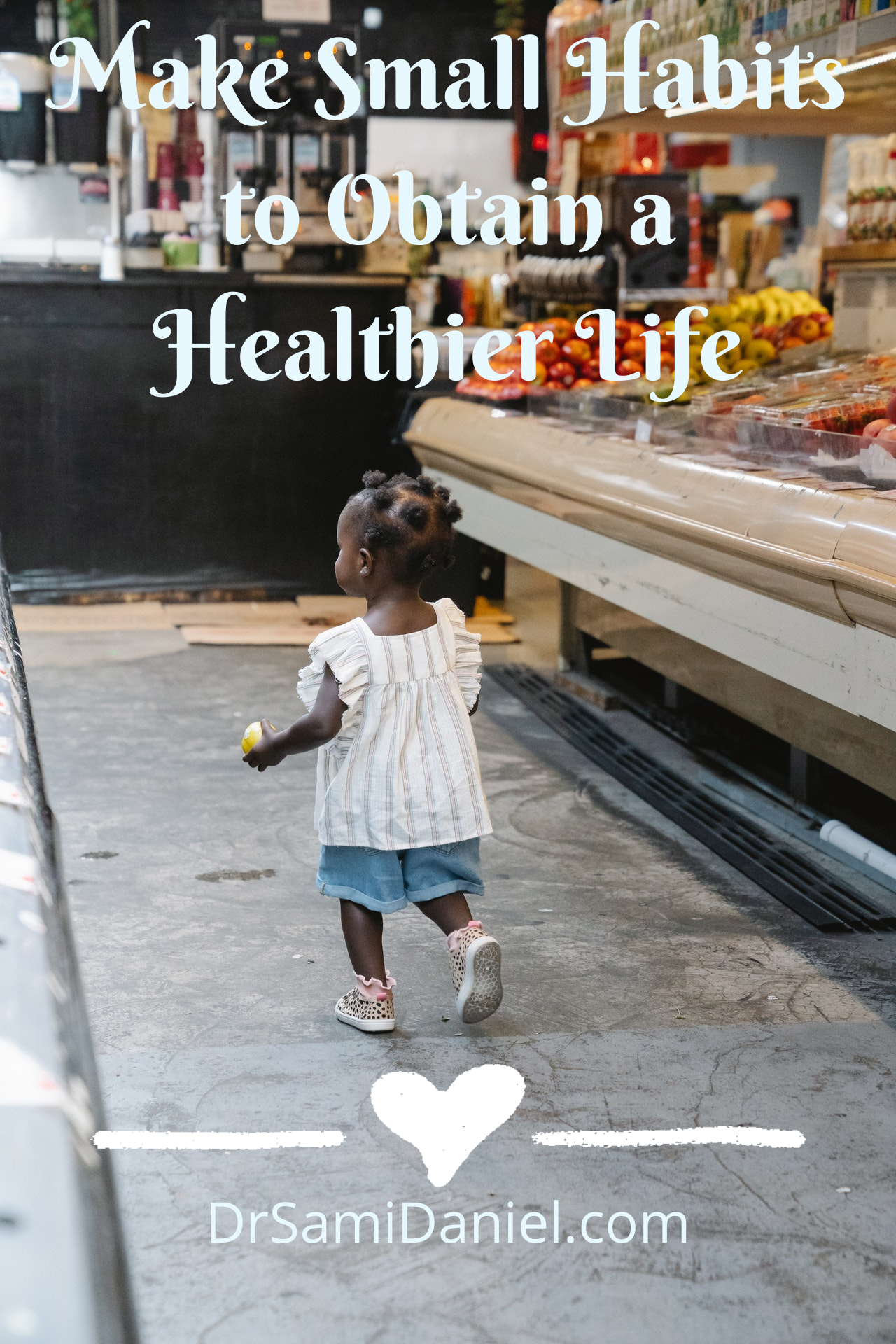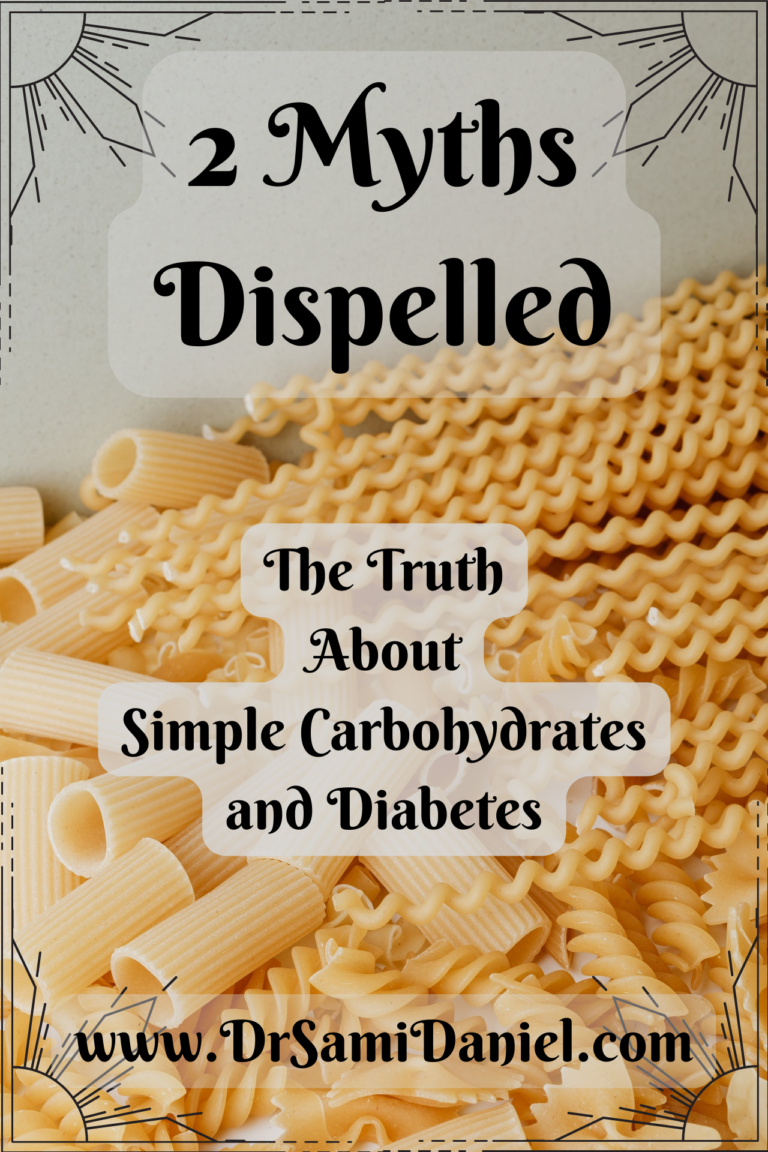How You Build a Healthy Life with Small Habits
I have recently discovered a book by James Clear called, “Atomic Habits: An Easy and Proven Way to Build Good Habits and Break Bad Ones”.
I do not get paid by him at the time of this writing. However I found his book illuminating and wanted to share my learned lessons and hopefully inspire you to learn and grow in your own way.
There are many reviews and summaries of the book. Do a Google or YouTube search and you will easily find them.
The purpose of this post is to hone in on the habits of your daily life. Specifically habits surrounding diet.
Our habits create the world we live in. We chose this world by choosing our habits which built it up around us; Or brought it down around us.
James Clear explains in great detail that our small daily decisions create a large impact over time. And he helps us realize that these decisions don’t always feel like decisions. They are so well ingrained within our minds that it has become automatic and therefore done with little to no thought.
Our phone pings, we pick it up to check the message. No forethought required.
Our alarm clock rings, we hit the snooze button once or twice or ten times. No forethought required.
We hit a lull at work, we check social media. Again, no forethought required.
Lunch hour comes (or if you’re like me, half an hour if you’re lucky), we grab what’s convenient and continue running through our busy lives.
We all have busy lives. We all feel like we are constantly behind. Constantly trying to keep up or catch up.
So at what point do we pause for a moment, organize ourselves, consciously take control of our time, and readjust one simple habit that will make a lasting impact over time?
“Atomic” Habits Build Up Over Time
What does the term “atomic” actually mean?
When saying that something is “atomic”, there seems to be an understanding that something is on a massive scale!
But actually it is on a minute scale which has the potential to build up to a massive scale.
Something so small that we are talking about atoms. Those little protons, neutrons, and electrons are probably the only thing we remember from chemistry class.
But while we don’t remember much else from this riveting class, we only need to remember that habits must be changed on an atomic level to be effective. And these habits must be allowed time to produce the effect we seek.
Tony Robbins often says that we need to make a decision to take massive action. Well where is the decision made to create this massive action?
If we take Tony’s philosophy and combine it with James’ philosophy, we create an unstoppable force. We create a series of minuscule habits that snowballs as it feeds on itself.
Essentially you took massive action by creating the smallest change in your life.
As Archimedes once said, “Give me a lever long enough and a fulcrum on which to place it, and I shall move the world.”
What does this mean? It means that we can create great force, by magnifying a small amount of effort in the correct way. And that is atomic!
Make it a Habit to Recognize and Evaluate Your Habits
As mentioned, we run a lot!
Our lives are hectic. We would forget to breathe if it wasn’t automatic.
However if there is one habit to establish, it is to find the time to recognize and evaluate your current habits.
We go through life on autopilot that we do not even realize most of our actions are deeply situated habits.
For a completely bizarre example, where do you get a shopping cart at the supermarket? Do you bring it from the parking lot on the way into the store? Do you get one inside? Do you tend to pull one from the middle line of carts or the one closer to the wall or door?
How do you enter the store? Do you go straight in? Turn off to the left or right? What section do you visit first? Produce? The deli? Canned goods?
How about when you select an item off the shelf? Do you simply grab the first one there? Do you get the second one instead? Or one further in the back?
How do you select your vegetables? How about cheese? Meat?
Do you feel “wrong” if you stray away from your routine? Like a nagging feeling that says you missed something? Or something feels off?
A simple trip to the grocery store is basically a long string of habits, each feeding into the other from the moment you park to the moment you pull away.
This string of habits is a chain that creates a system we always follow. And this system is preprogrammed with all the decisions we are going to make about what foods we want to eat or how we select each item.
So the number one habit to establish in any scenario would be to recognize your habits. Next would be to evaluate whether or not it serves your best interest.
The Little Habits of Eating Well
While exercise is important, you will never be able to out-exercise a bad diet.
Therefore the habits you establish in the grocery store and the kitchen will go a long way in accomplishing your goals.
We must redesign our lives for success. This starts with our habits.
Habits of Diet
Get in the car.
Choose a grocery store.
Choose the path to the grocery store with the least resistance
Shortest route? Any traffic? Any fast food along the way? Are you going hungry or full?
Arrive at the store.
Where do you park? Near the entrance? Further away to get some exercise? Or to protect your car from other people?
Enter store
Do you enter on the whole foods side? Or the pharmacy side? Do you get a cart or a basket? Do you walk straight in? Turn to the left or right?
Route in store
What section do you go to first? Produce section? Meats and poultry? The freezer section? What is the usual map you follow inside a store?
Selection
How do you choose an item you are interested in purchasing? Do you check the food label? Do you read the nutrition facts? Do you read the ingredients? Do you use your senses and see if it looks good/ smells good/ feels good? Do you search for the best quality? Or do you pick whatever’s right in front of you?
Placing items in the cart/basket
How do you organize your items? Is it a mess and items are obscured from view? Or does everything have their place so you can clearly see everything with ease? Does your cart/basket seem to have sections as though you have a mini-grocery store on wheels? Does your cart look appetizing? Do you look forward to creating food at home with what you have? Or do you seem to prioritize convenience?
Check out
Do you buy any candy, drinks, or magazines at the register? How do you pay? Credit/ debit/ cash? How do you check out the items in your cart/basket? How do you bag your items? How many bags do you use? Do you carry all the bags back to your car? Do you use the cart for assistance?
Exiting the store
What things do you pass by on your way out? Does anything seem to tempt you for more stuff? Do you tend to buy a lottery ticket? Do you stop at the ATM? Do you play the claw machines? Rent a movie? (Yes, these habits can affect your ability to buy healthy foods and eat them consciously. Be mindful of everything you do)
Getting back to your car
Do you just throw everything in the trunk or the back seat? Do you place everything down with care? Does the trunk look like a mini-grocery store again with sections?
These are just A FEW habits
I haven’t even mentioned getting home or what habits we might consider in the kitchen!
But these are just a few habits that I personally try to be mindful of when going to the store. Being mindful of them helps me appreciate how my habits form the foundation of my decisions.
For example: Placing everything neatly in my cart helps me ease my concerns about potentially missing something and then over-compensating by getting more food that I might not need. Extra food equals extra calories or extra waste.
Unfortunately healthy food also means higher expense in this country. So a dollar saved from impulse buys on the way out is another dollar consciously invested in my health.
Change Habits One at a Time
Keeping in line with “Atomic” habits, we want to make “atomic” changes over “atomic” time periods.
This means that we should make change easiest by making one change at a time until we are comfortable with it.
If you changed your route at the grocery store to stop by the produce section first, do not feel compelled to load up on fruits and vegetables. You likely won’t eat them right off the bat!
Instead, be content with simply changing your route for now. You may consider buying just one piece of fruit or vegetable at your next visit.
Ensure your success with small steps forward!
Conclusion
Little habits create big impact over time.
Pay attention to the little things you do on a daily basis and make small adjustments that are more beneficial to you.
If you cannot stick to the new habit even though you want to, then the new habit is not small enough. Try to break it down further.
If your old habit is difficult to break, then it’s not hard enough to perform as per James Clear’s insight. Find ways to increase its difficulty beyond the new habit you want instead.
Life is an interesting balance of big and small. We need big visions to be inspired. We need small actions to get there.
So consider the small steps it will take to achieve your big goals. They are often over-looked. Consciously spending time in a small world will recreate your life in a big way!







